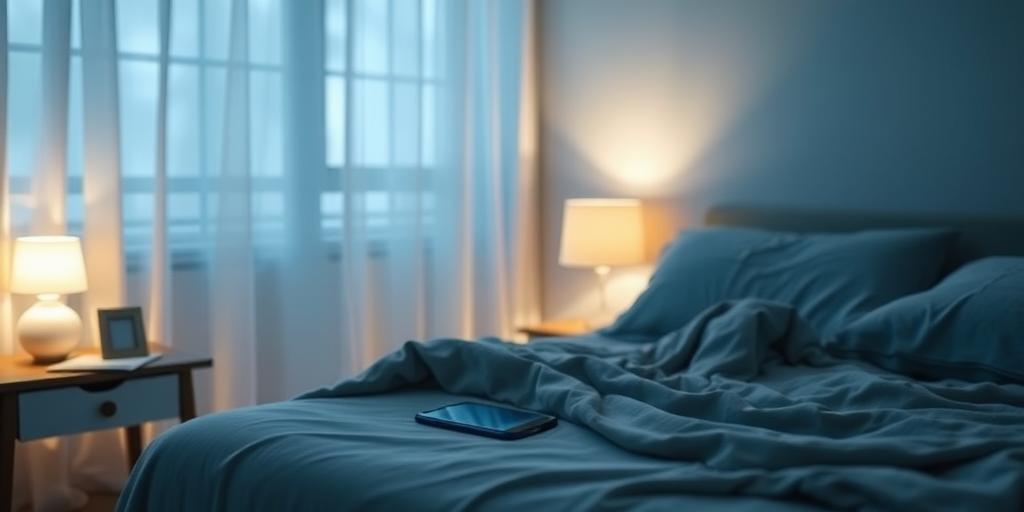Sleep Hygiene: Prioritizing Rest in a Busy 2025
In the fast-paced world of 2025, where technology blurs the lines between work and leisure, prioritizing sleep might seem like a luxury. However, it’s a necessity for maintaining optimal health, productivity, and overall well-being. This post explores the concept of sleep hygiene and provides actionable strategies to improve your sleep quality, even amidst a hectic schedule.
What is Sleep Hygiene?
Sleep hygiene refers to a set of practices and habits that are necessary to have normal, quality nighttime sleep and full daytime alertness. It encompasses various lifestyle factors that can influence your sleep patterns.
Why is Sleep Hygiene Important?
- Enhanced Productivity: Adequate sleep improves cognitive functions such as focus, concentration, and memory.
- Improved Physical Health: Quality sleep boosts the immune system, regulates metabolism, and reduces the risk of chronic diseases.
- Better Mental Health: Sleep deprivation can lead to mood swings, anxiety, and depression. Prioritizing sleep can stabilize your emotional state.
- Increased Safety: Lack of sleep impairs judgment and reaction time, increasing the likelihood of accidents.
Key Components of Sleep Hygiene
-
Consistent Sleep Schedule: Go to bed and wake up at the same time every day, even on weekends. This helps regulate your body’s natural sleep-wake cycle (circadian rhythm).
-
Optimal Sleep Environment: Ensure your bedroom is dark, quiet, and cool. Use blackout curtains, earplugs, or a white noise machine to minimize disturbances. The ideal room temperature for sleep is between 60 and 67 degrees Fahrenheit (15.6 to 19.4 degrees Celsius).
-
Comfortable Bedding: Invest in a supportive mattress, pillows, and comfortable bedding. Replace them as needed to maintain optimal comfort.
-
Limit Screen Time Before Bed: The blue light emitted from electronic devices can interfere with melatonin production, a hormone that regulates sleep. Avoid using smartphones, tablets, and computers at least one hour before bed.
-
Avoid Caffeine and Alcohol Before Bed: Caffeine is a stimulant that can keep you awake, while alcohol can disrupt your sleep cycle. Avoid consuming these substances several hours before bedtime.
-
Regular Exercise: Engaging in regular physical activity can improve sleep quality. However, avoid intense workouts close to bedtime.
-
Manage Stress: Practice relaxation techniques such as meditation, deep breathing, or yoga to reduce stress and promote relaxation before sleep.
-
Mindful Eating: Avoid heavy meals close to bedtime, as they can interfere with sleep. If you’re hungry, opt for a light, healthy snack.
Sleep Hygiene in 2025: Adapting to Modern Challenges
In 2025, the lines between work and personal life are increasingly blurred. Remote work, constant connectivity, and demanding schedules can make it challenging to prioritize sleep. Here are some strategies to adapt sleep hygiene to modern challenges:
- Digital Detox: Set boundaries with technology. Designate specific times for checking emails and social media, and avoid using electronic devices during those hours.
- Create a Wind-Down Routine: Establish a relaxing pre-sleep routine that helps you unwind and prepare for sleep. This could include taking a warm bath, reading a book, or listening to calming music.
- Optimize Your Workspace: If you work from home, ensure your workspace is separate from your sleep area. This helps create a mental association between your bedroom and relaxation.
- Use Sleep-Tracking Technology: Consider using a sleep tracker to monitor your sleep patterns and identify areas for improvement. However, avoid becoming overly focused on the data, as this can create anxiety and interfere with sleep.
Seeking Professional Help
If you consistently struggle to fall asleep or stay asleep, despite practicing good sleep hygiene, consider seeking professional help. A healthcare provider can evaluate your sleep patterns and recommend appropriate treatments, such as cognitive behavioral therapy for insomnia (CBT-I) or medication.
Conclusion
Prioritizing sleep hygiene is essential for maintaining optimal health, productivity, and well-being in the demanding world of 2025. By implementing the strategies outlined in this post, you can improve your sleep quality and wake up feeling refreshed and ready to tackle the challenges of the day. Remember, sleep is not a luxury—it’s a fundamental human need.
